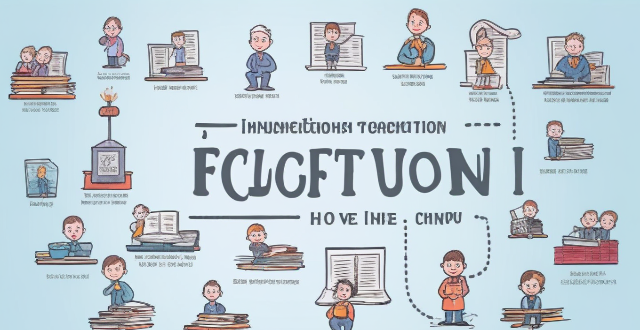The implementation of new education policies can have significant effects on both students and teachers. Potential impacts on students include changes in academic performance, mental health, and access to education. For teachers, new policies may require professional development, adjustments in teaching approaches, and increased workload and stress levels. It is crucial to consider the potential effects before implementing any changes and ensure that they align with the goals of providing high-quality education for all students.

Impact of New Education Policies on Students and Teachers
The implementation of new education policies can have significant effects on both students and teachers. Below are some potential impacts:
Impact on Students
Academic Performance
New education policies may lead to changes in curriculum, assessment methods, or teaching approaches, which can affect students' academic performance. For example, if a policy introduces more project-based learning, students may become more engaged in their studies and improve their problem-solving skills.
Mental Health
Changes in education policies can also have an impact on students' mental health. If a policy increases the workload or pressure on students, it may lead to stress, anxiety, or burnout. On the other hand, policies that prioritize well-being and reduce testing can help alleviate these issues.
Access to Education
Some education policies aim to increase access to education for underrepresented groups or those with special needs. These policies can provide equal opportunities for all students to receive a quality education.
Impact on Teachers
Professional Development
New education policies may require teachers to undergo additional training or professional development to implement changes effectively. This can lead to increased knowledge and skills but may also add to their workload.
Teaching Approaches
Changes in policies may necessitate adjustments in teaching approaches. For instance, if a policy emphasizes critical thinking, teachers may need to incorporate more discussion-based activities into their lessons. This can be challenging but also rewarding as it allows them to engage with students more effectively.
Workload and Stress Levels
Changes in education policies can sometimes result in increased workload and stress levels for teachers. They may need to adapt lesson plans, create new assessments, or attend additional meetings related to the policy changes. However, policies that reduce standardized testing or streamline administrative tasks can help alleviate these issues.
In conclusion, new education policies can have both positive and negative impacts on students and teachers. It is essential to consider the potential effects before implementing any changes and ensure that they align with the goals of providing high-quality education for all students.